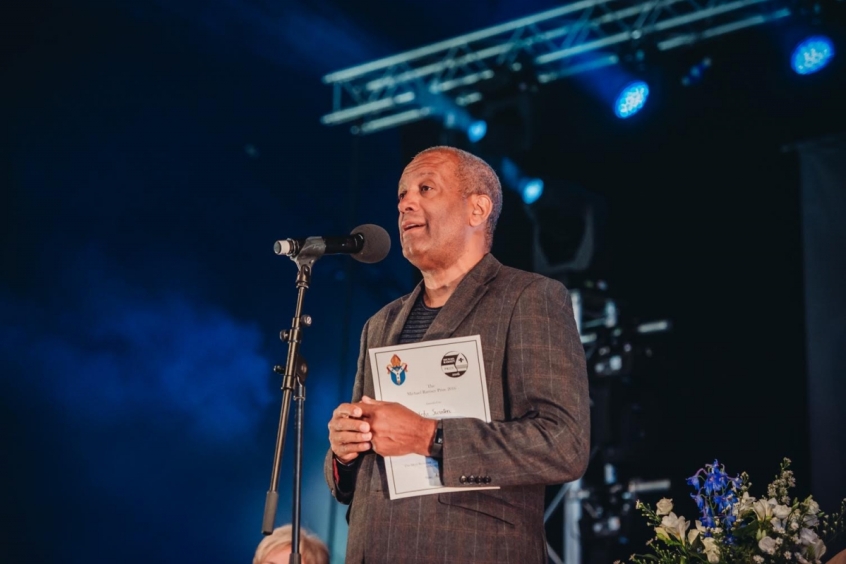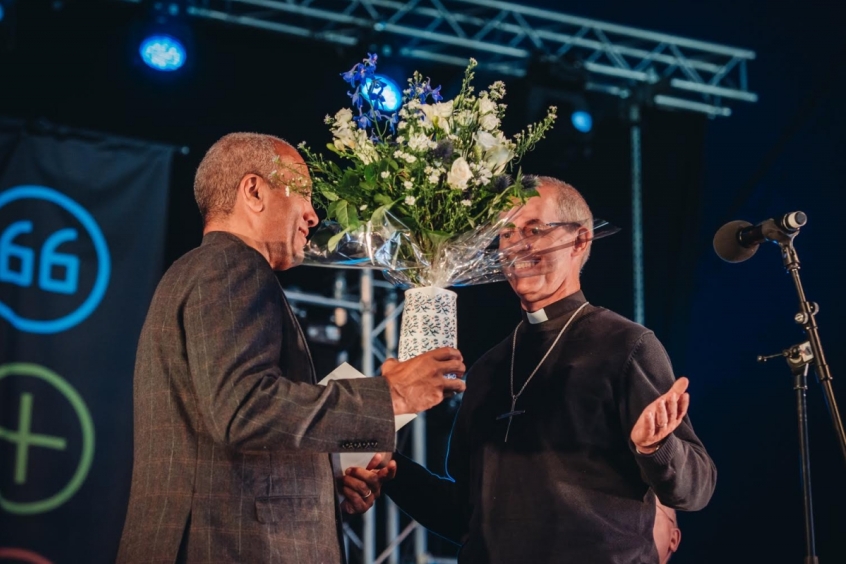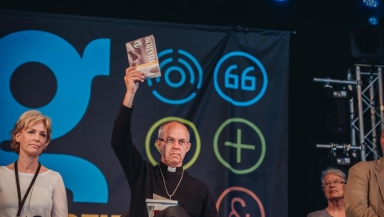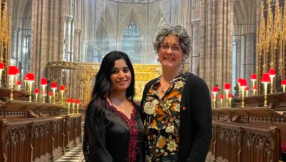
A book on dementia has won the esteemed Michael Ramsey prize for theological writing, it was announced today by Archbishop Justin Welby at the Greenbelt Christian festival.
The winner of the prize, which was established by the former Archbishop Rowan Williams in 2005, is Dementia: Living in the memories of God by John Swinton, Professor in Practical Theology and Pastoral Care at the School of Divinity with Religious Studies and Philosophy at the University of Aberdeen.
Dr Swinton, who receives an award of £10,000, is a former mental health nurse, Presbyterian Church of Scotland minister and now a theologian. His book outlines how people with dementia and people without the disease are the same before the eyes of God, and how God never forgets who we are.
Speaking to Christian Today just after being awarded the prize, Dr Swinton said he was "very honoured". He added: "It's always a strange process being nominated for anything. I feel happy and honoured."
Presenting the award, Archbishop Welby described the process of deciding between the shortlisted books, which came from over 100 nominations, as "slightly painful to put it mildly". He described Dr Swinton's book as "cross disciplinary" and said it "goes straight to the heart of one of our most profound failures" – measuring people in economic terms. Welby said the book was "deeply challenging, in places hard work" and said Dr Swinton had "done our church and... our country a great service".

Dr Swinton told Christian Today: "My background was as a mental health nurse. I nursed people for 16 years and spent a lot of that time with people with severe mental health issues, schizophrenia in particular, and also people with dementia... And what used to happen then was a basic assumption that these people were hopeless... I was never comfortable with that."
The author then moved on to become a mental health chaplain – a time he describes as "my formative years" – before moving into theology. "And I thought 'OK, God's given me this experience, how do I make sense of it?'", he said.
Dr Swinton, whose father was a Church of Scotland minister, said he had been a Christian since he was 24 years old.
He went on: "People with dementia are no different from people without dementia. There is no separation. The separation comes when people are afraid of the diagnosis... In reality there comes a time in all of our lives when we come to forget things but the key is God never forgets us... One of the problems with dementia is not people forgetting things but that... the community forgets about you, so you get lost... But nobody's lost – the task of the Christian church is to remember people.
"If you think all you are is the things that you can do... which is very typical of western individualism [it is] very problematic... But when you stop to think, you are who you are because you engage with other people... We are always interlocked with other people and ultimately inter-locked with God."
The other shortlisted books were Faith and Struggle on Smokey Mountain: Hope for a planet in peril, by Benigno P. Beltran; Healing Agony: Reimagining forgiveness, by Stephen Cherry; Children in the Bible: A fresh approach, by Anne Richards; Unapologetic: Why, despite everything, Christianity can still make surprising emotional sense, by Francis Spufford; and God's Presence: A contemporary recapitulation of early Christianity, by Frances Young.
As well as Welby, the judging panel, who decided on their choice last night, were: Professor Rosalind Searle, director at The Centre for Trust, Peace, and Social Relations; the broadcaster and writer Sally Magnusson; Archbishop Josiah Idowu-Fearon, the secretary general of the Anglican Communion and former Archbishop of the Province of Kaduna in Nigeria; and Dr Anna Rowlands, lecturer in Catholic Studies in the Department of Theology and Religion at Durham University.

The prize, named after the 100th Archbishop of Canterbury, was judged against the criteria of celebrating "the most promising contemporary theological writing, and upon the degree to which each book deepens their faith, makes them think, inspires them to action, and is an enjoyable read".
Previous winners include Bishop Tom Wright and Fr Timothy Radcliffe.
Earlier today at Greenbelt, thousands of festival goers gathered for a special Communion service interspersed with singing and jokes and led by children.
Instead of preaching a sermon, Archbishop Welby answered questions from children about the readings, Isaiah 11:1-6 and Matthew 11:16-19, and about his role. One child, Alice, asked Welby what was the hardest thing about his job. "Dealing with the fact that other Christians don't love each other and we don't live as a family that love each other," he replied, to applause.













